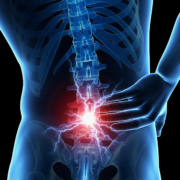Neck Pain treatment
Neck pain is a significant public health concern affecting millions of people worldwide. Recent research has shed light on its prevalence, risk factors, and potential interventions.
Epidemiology and Burden
Neck pain is the fourth leading cause of years lost to disability globally.
The age-standardized prevalence rate is approximately 27 per 1,000 population, with higher rates observed in high-income regions such as North America, Western Europe, and high-income Asia Pacific. The global burden of neck pain tends to increase with age until 70-74 years and is generally higher in women than in men
Risk Factors
Research has identified several key risk factors associated with neck pain:Psychological Factors:
- Long-term stress
- Lack of social support
- Anxiety and depression
Lifestyle and Behavioral Factors:
- Improper sitting posture
- Staying up late
- Prolonged use of electronic devices
- Lack of exercise
- Improper use of pillows
Sleep-Related Factors:
- Poor sleep quality and insufficient sleep duration are associated with increased odds of neck pain
Demographic Factors:
- Age and sex can influence the prevalence and development of neck pain, though more research is needed in this area
Interventions and Management
Several approaches have been studied for managing neck pain:Exercise:
- Proprioceptive and strengthening exercises have shown moderate evidence of effectiveness compared to usual care
Manual Therapy:
- Manipulation has been compared to muscle relaxants, NSAIDs, and usual care, though evidence quality is very low
Other Interventions:
- Traction and McKenzie mobilization have been studied, but evidence quality remains low
Future Research Directions
While significant progress has been made in understanding neck pain, there are still areas that require further investigation:
- The relationship between sleep quality and neck pain, particularly gender differences in this association
- The effectiveness of various interventions, especially in diverse populations
- The long-term impact of lifestyle modifications on neck pain prevention and management
As neck pain continues to be a major health issue, ongoing research is crucial for developing more effective prevention strategies and treatment options.






